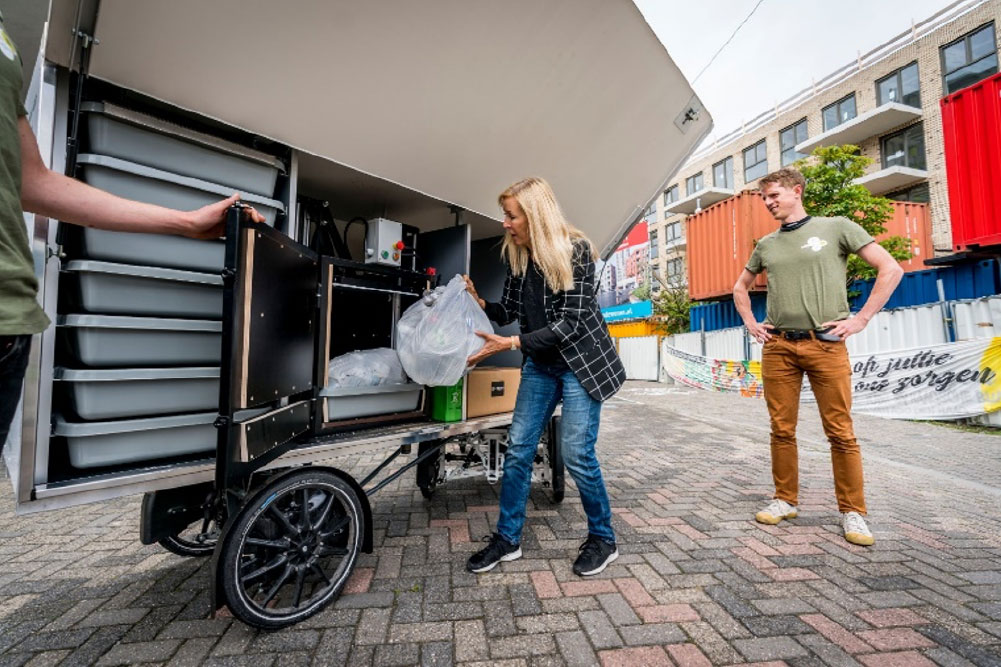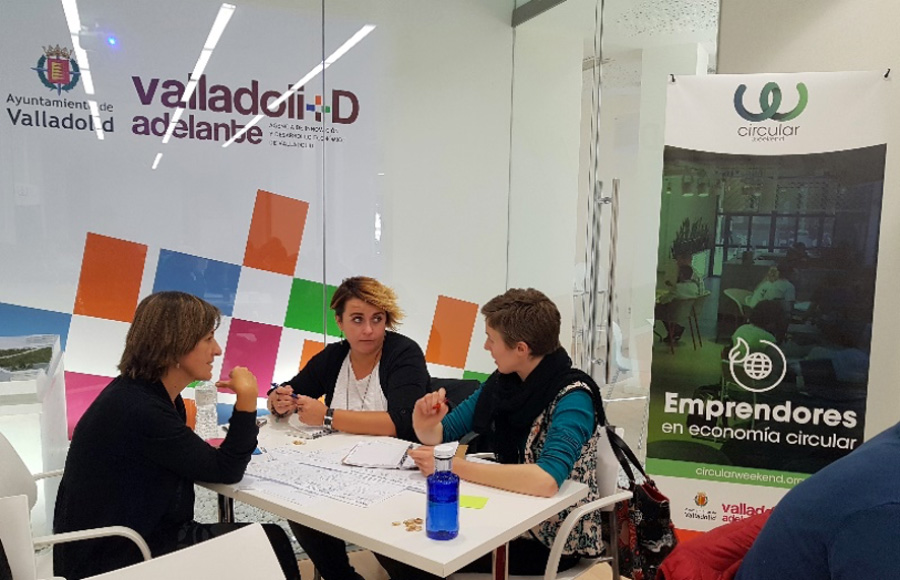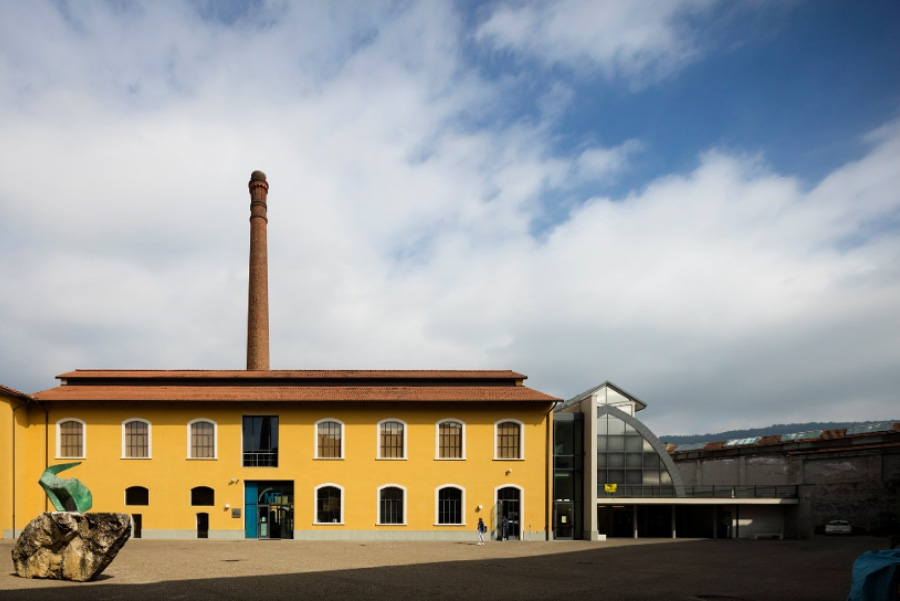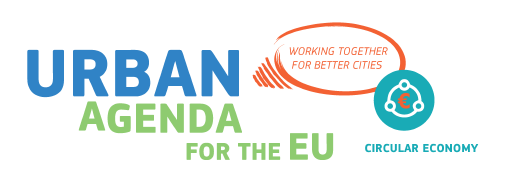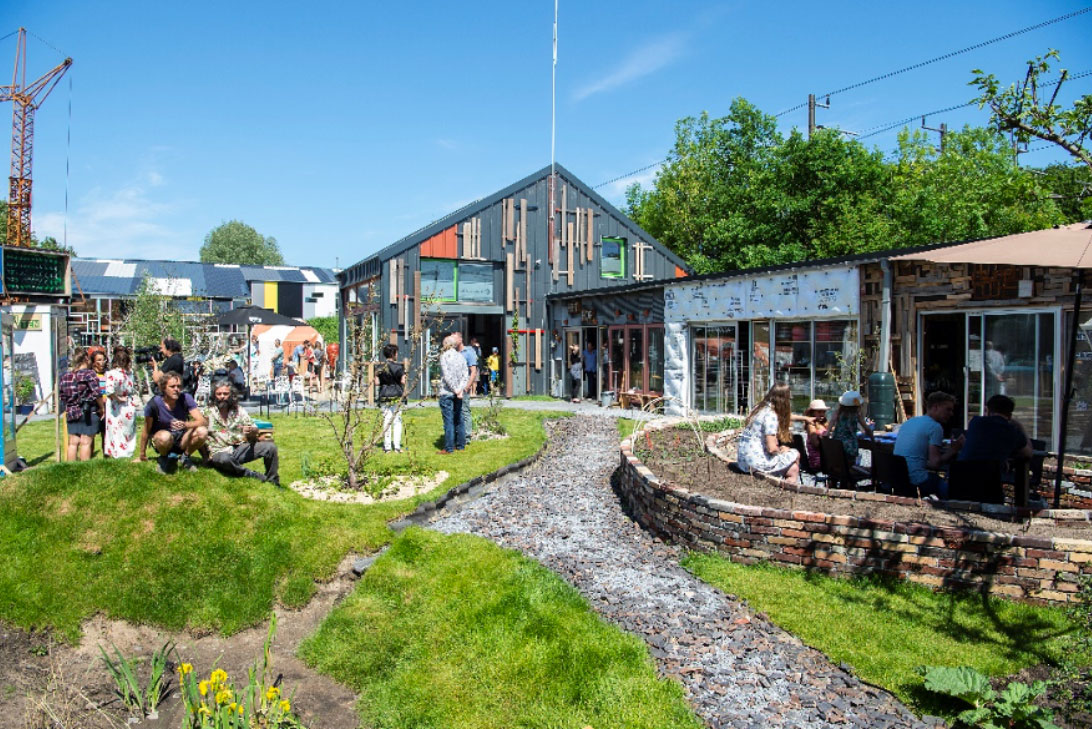
The staff in Hof van Cartesius ![]() are not talking about the circular economy, they just do it. It is their can-do mentality that has made them into a well-known circular frontrunner in Utrecht, the Netherlands. This approach also taught them a lot about the funding landscape, since they experienced that getting funding for implementing circular economy is not always straightforward. Creativity and looking beyond specific circular funding instruments have brought them the necessary funds – and in some cases a little bit more than that.
are not talking about the circular economy, they just do it. It is their can-do mentality that has made them into a well-known circular frontrunner in Utrecht, the Netherlands. This approach also taught them a lot about the funding landscape, since they experienced that getting funding for implementing circular economy is not always straightforward. Creativity and looking beyond specific circular funding instruments have brought them the necessary funds – and in some cases a little bit more than that.
Circular economy is more than economy
Hof van Cartesius provides work spaces for sustainable and creative entrepreneurs. The work spaces are located near a railway station and extend over a surface of 1500 m2. The buildings are all constructed in a circular way, using only secondary materials. In three years’ time, the initiative has changed this fringe of Utrecht into a circular hotspot.
The staff of Hof van Cartesius emphasise that circular economy is more than only the economy. They use the concept of circularity in a broader sense, including respect for people and nature. This vision resulted in working spaces where locals work together on improving their city – and eventually the world they live in. For their buildings they define circularity with the 10 Rs: refuse, reduce, redesign, re-use, repair, refurbish, remanufacture, repurpose, recycle, and recover. The aim of this strategy is to use as little new materials as possible, while also keeping a focus on circularity when using the building.
Funding requires creativity

Hof van Cartesius is a cooperative, with work space tenants as its members. This organisational structure ensures a commitment to the initiative and its circular vision and a willingness to contribute to the maintenance of shared spaces. The further development of the initiative, however, requires additional funding sources. The management of Hof van Cartesius has been proactive and creative in finding such sources. Here are their main pieces of advice:
- Combine different funding sources: circular economy is high on the policy agenda and public funding appears readily available. Hof van Cartesius found out, however, that funding sources are often restricted to specific activities. The organisation has coped with these restrictions by combining funding sources like grants, loans, and crowdfunding.
- Capitalise on the broader impact of circularity: to increase funding opportunities, the management of Hof van Cartesius did not only use circular funding sources. They also applied for funds that were not necessarily aimed at circularity, but more focused towards job creation, creative industry, and urban development.
- Talk with funders: funding applications from Hof van Cartesius were initially rejected. Talking with fund managers helped them to make the case for funding their scaling-up activities.
- Sometimes the added value of a funding source is not the money: the organisation also used crowdfunding as an alternative source of funding for its activities. They found that obtaining funding via crowdfunding was time-consuming, but effective in gaining exposure and in building a supporting community.
- Keep an eye on the cost/benefit ratio: the benefits of some (public) funding sources do not outweigh the involved costs, because application procedures are cumbersome and compliance requirements can be extremely stringent. For smaller organisations, like Hof van Cartesius, it is crucial to make a good assessment of this cost/benefit ratio before applying to a funding source.
- Make sure that partners aim for the same kind of impact: circular economy is about collaboration and this is fully recognised by Hof van Cartesius. In practice, however, collaborating with some partners has proven to be more difficult than foreseen. Working with universities, for example, showed that there is a difference in the perception of circular economy from a more theoretical to a more practical hands-on perspective.
Expanding Utrecht’s circular economy
The organisation is currently expanding the circular economy in Utrecht, with a second initiative. Buurman Utrecht ![]() is a hardware store that sells second-hand building equipment and materials. The shop was created to stimulate re-use of materials and to prevent waste generation. Buurman Utrecht makes trailers available just outside the city’s waste collection stations. Citizens can dispose their “waste” into the trailers, which are picked up once a week and brought to the shop. This prevents a lot of waste from being incinerated.
is a hardware store that sells second-hand building equipment and materials. The shop was created to stimulate re-use of materials and to prevent waste generation. Buurman Utrecht makes trailers available just outside the city’s waste collection stations. Citizens can dispose their “waste” into the trailers, which are picked up once a week and brought to the shop. This prevents a lot of waste from being incinerated.
The system has been in place for some time and almost two-thirds of the materials that end up in the trailers are more or less brand new. This means that most of the materials can be directly reused at Buurman Utrecht, while other materials are recycled. Buurman Utrecht also organises workshops on how to reuse secondary materials. Workshop spaces are also available for rent.
More information
Hof van Cartesius webpage ![]() or EFRO
or EFRO ![]()
